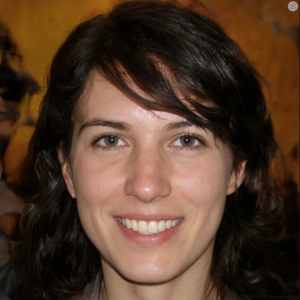As Paris prepares for the 2024 Paralympic Games, a new generation of athletes is set to compete alongside seasoned veterans from August 28 to September 8. The Games will utilize 18 of the 35 Olympic venues, including the Grand Palais, which was praised for its hosting of fencing and taekwondo. The La Defense Arena will host para-swimming again, with 141 gold-medal events scheduled, while the Stade de France will serve as the venue for track and field competitions.
The Paralympic Games will open with a ceremony at Place de la Concorde, marking the first time in Paralympic history that the ceremony takes place away from the main stadium. This decision mirrors the approach taken during the Olympics when the ceremony was held on the River Seine. Theatre director Thomas Jolly, who also oversaw the Olympics opening, emphasized the symbolism of placing the Paralympic ceremony in the heart of Paris—a city whose Metro system remains largely inaccessible to wheelchair users. Jolly described this as a “political marker,” highlighting the ongoing need for greater accessibility in urban environments.
To address these accessibility challenges, organizers have ensured that Paris buses are wheelchair-friendly and have introduced 1,000 specially adapted taxis for the Games. Although ticket sales were initially sluggish, they have picked up significantly since the Olympics, with over 1.9 million tickets sold.
The Paralympics always bring new stars to the forefront, and this year promises to be no different. One to watch is 19-year-old American sprinter and high jumper Ezra Frech, an above-the-knee amputee who has already attracted attention for his journey to Paris. Meanwhile, familiar faces like British amputee sprinter Jonnie Peacock, who made a comeback last year, will aim for a fourth consecutive Paralympics medal. In sitting volleyball, Iranian legend Morteza Mehrzad, who stands at 8 feet 1 inch (2.46 meters), will be looking to defend his gold.

Beyond the athletic achievements, the Paralympics carry a broader message. Andrew Parsons, President of the International Paralympic Committee, expressed his hope that the Paris Games will elevate the issues facing disabled people globally. He emphasized the need to restore disability rights to the top of the global agenda, noting that in recent years, discussions about disability have fallen behind those about sexual and gender identity.
Paralympic powerhouse China will once again field a strong team, aiming to replicate its dominant performance in Tokyo, where it won 96 gold medals. Britain, which finished second in the medal table with 41 golds, will also be a major contender. Host nation France, buoyed by the success of its Olympic team, hopes to improve on the 11 gold medals it won in 2021.
Despite the ongoing war against Russian forces, Ukraine will send a team of 140 athletes competing across 17 sports. Meanwhile, 96 athletes from Russia and Belarus will participate under a neutral banner, barred from the opening and closing ceremonies due to the ongoing conflict and their countries’ suspension from international federations.
As the Paralympics approach, all eyes are on Paris to see how the City of Light will shine a spotlight on disability sports and broader issues of accessibility and inclusion.










